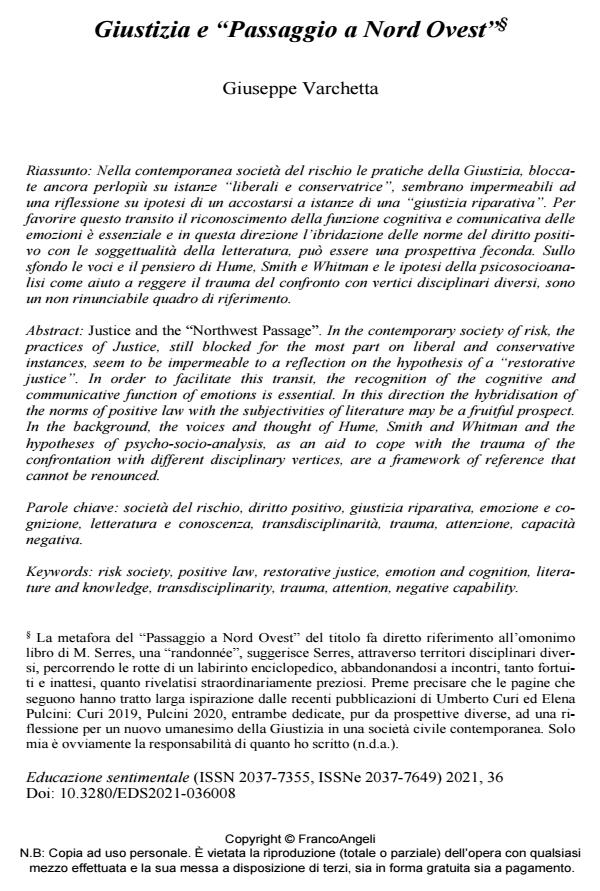Giustizia e "Passaggio a Nord Ovest"
Journal title EDUCAZIONE SENTIMENTALE
Author/s Giuseppe Varchetta
Publishing Year 2022 Issue 2021/36
Language Italian Pages 13 P. 78-93 File size 226 KB
DOI 10.3280/EDS2021-036008
DOI is like a bar code for intellectual property: to have more infomation
click here
Below, you can see the article first page
If you want to buy this article in PDF format, you can do it, following the instructions to buy download credits

FrancoAngeli is member of Publishers International Linking Association, Inc (PILA), a not-for-profit association which run the CrossRef service enabling links to and from online scholarly content.
Justice and the "Northwest Passage". In the contemporary society of risk, the practices of Justice, still blocked for the most part on liberal and conservative instances, seem to be impermeable to a reflection on the hypothesis of a "restorative justice". In order to facilitate this transit, the recognition of the cognitive and communicative function of emotions is essential. In this direction the hybridisation of the norms of positive law with the subjectivities of literature may be a fruitful prospect. In the background, the voices and thought of Hume, Smith and Whitman and the hypotheses of psycho-socio-analysis, as an aid to cope with the trauma of the confrontation with different disciplinary vertices, are a framework of reference that cannot be renounced.
Keywords: risk society, positive law, restorative justice, emotion and cognition, literature and knowledge, transdisciplinarity, trauma, attention, negative capa-bility.
Giuseppe Varchetta, Giustizia e "Passaggio a Nord Ovest" in "EDUCAZIONE SENTIMENTALE" 36/2021, pp 78-93, DOI: 10.3280/EDS2021-036008